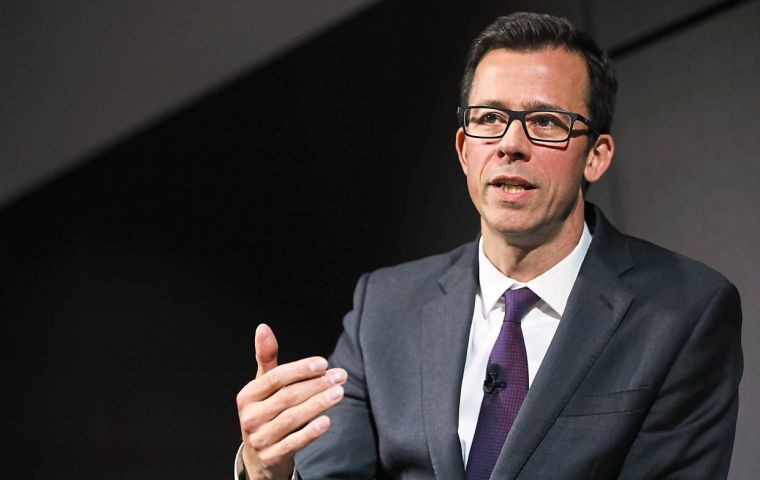MercoPress. South Atlantic News Agency
Bank of England divided over the use of negative interest rates
 Gertjan Vlieghe, openly supported the use of negative interest rates if the U.K. needs more stimulus
Gertjan Vlieghe, openly supported the use of negative interest rates if the U.K. needs more stimulus A member of Bank of England's Monetary Policy Committee, Gertjan Vlieghe, openly supported the use of negative interest rates if the U.K. needs more stimulus, while Deputy Governor Dave Ramsden said the bank still had scope for more quantitative easing. which has been a tried and tested policy.
However despite Ramden's statement, Vlieghe contended that there's “little QE can do to add further stimulus to the economy.” In a speech released last Friday that will be delivered to Durham University this week, Vlieghe argued that “should market functioning deteriorate again, of course the MPC will not hesitate to accelerate the buying pace again, if that is appropriate.”
”Absent such a deterioration, and with long-term interest rates already very low, we need to look for tools other than QE to deliver further stimulus if required.”
The remarks underscore a growing rift between BOE policy makers on the contingency they could resort to if the massive stimulus already deployed to the economy proves to be insufficient to drive a recovery from the pandemic crisis. While officials have agreed that negative interest rates could be used in theory, such a prospect is still months away.
Vlieghe zeroed in on the risk of labor market weakness, highlighted last week by another member of the Monetary Policy Committee Michael Saunders, who said that he favored negative rates to deal with such a threat. He added that if the economy evolves in line with this month’s projections, “no further monetary stimulus is required.”
“My preferred path for policy would be to keep the current monetary stimulus in place until well into 2023 or 2024,” Vlieghe said, adding that if labor market slack persists, “I would favor a negative Bank Rate as the tool to implement the stimulus.”
The speech also featured a graphic showing three scenarios for monetary policy for the coming years, including one where the benchmark falls to -0.75% -- the same level reached by the Swiss National Bank, which has the world’s lowest interest rate.
That raises the prospect that Vlieghe could hypothetically envisage the BOE reducing borrowing costs that far if it wanted to, if not further.




Top Comments
Disclaimer & comment rulesCommenting for this story is now closed.
If you have a Facebook account, become a fan and comment on our Facebook Page!